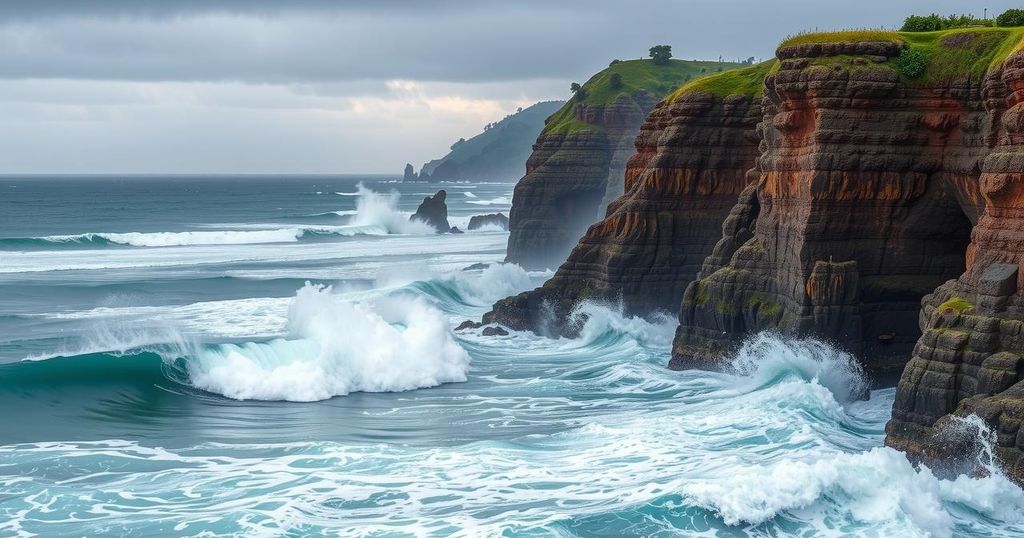Tragic Consequences of Massive Waves Along the Pacific Coast

Three fatalities have been reported due to waves reaching 13 feet in Ecuador, Chile, and Peru. Nearly 100 ports were closed as a result of these extreme weather conditions. Jorge Carillo, an official in Ecuador, indicated that the country is facing an ‘extreme event’ and warned of potential future occurrences.
Recent reports indicate that three individuals have lost their lives due to the onslaught of massive waves reaching heights of 13 feet (approximately four meters) along the coasts of Ecuador, Chile, and Peru. The severity of the situation has prompted authorities to close nearly 100 ports across these countries, impacting maritime activities significantly. Jorge Carillo, Ecuador’s Secretary for Risk Management, described the phenomenon as an ‘extreme event’ and cautioned citizens that similar occurrences may arise in the future, underscoring the need for vigilance in coastal areas.
The occurrence of extreme wave events along the Pacific coast is not unprecedented, and environmental factors such as climate change and geological activity can contribute to the severity and frequency of these phenomena. Coastal nations like Ecuador, Chile, and Peru rely heavily on their ports for trade and transportation, making the closure of such facilities due to adverse weather conditions particularly impactful. Additionally, the safety of residents and visitors in these coastal areas is of utmost concern during such weather disruptions, prompting officials to issue warnings and prepare for potential further incidents.
In conclusion, the massive waves affecting Ecuador, Chile, and Peru have had dire consequences, resulting in loss of life and significant disruptions to maritime operations. The authorities’ designation of this event as ‘extreme’ highlights the need for increased awareness and preparedness in the face of natural disasters. Such measures will not only safeguard lives but also ensure the resilience of coastal economies against future occurrences.
Original Source: www.brenhambanner.com








